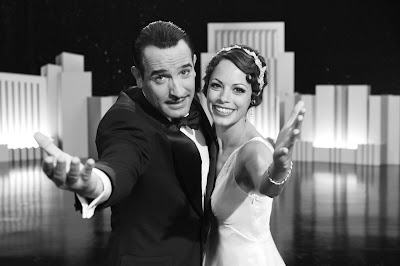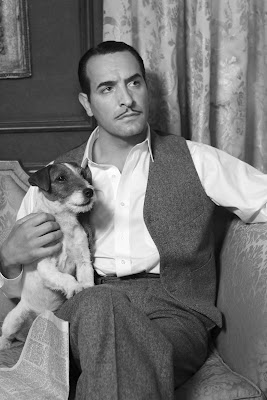Body image issues, that is. As I'm a student at an women's college, you'd expect this to be a topic I would hear a lot about. In reality, it doesn't get talked about that much, not in the public sphere and not in the private sphere, either (at least, not the sphere I run in). But on one of the YouTube channels I subscribe to, the sarcaschicks, the five girls who run the channel have been addressing the topic in their videos this week. So it got me thinking about the subject of body image, about its role at my college and its role in my life.
The sarcaschicks' videos have been quite gutsy as far as YouTube videos go. The topics they're discussing are important to bring into the public sphere, because young women in western society are not only encouraged to obsess about personal appearance, but also to obsess about it privately. It's all very well to spend hours in front of your full-length mirror in the privacy of your own room, but glancing in mirrors or other reflective surfaces as you go about your life outside just makes you look vain. Which is not to say that people don't do it - you wouldn't believe how many reflective shop windows I found on my commute to work this summer. Or maybe you would because you do the same thing. But we certainly shouldn't talk about it aloud.
On the flip side of this is the kind of treacly, self-pitying over-sharing that some girls practice but that does nothing to advance the discussion or change attitudes. This is when girls admit to feeling ugly and everyone assures them that they have nice hair. As Sonya says in Uncle Vanya, everyone compliments plain girls on their hair. These kinds of conversations don't make anyone feel better, and besides, they usually take place in dorm rooms late at night - so much for public discussion.
So far, the sarcaschicks' have narrowly avoided this kind of nonsense. Instead, they're being realistic about their feelings, recognizing that a lot of girls sometimes feel shitty about their bodies and that it shouldn't be so common, but that girls also shouldn't feel worse just because every so often they succumb to the enormous pressure that society puts on young women to be beautiful all the time. So, good going for getting it out in a public space like YouTube, and here's hoping this won't devolve into a girls' therapy session.
What I'd really like to see, of course, is some of YouTube's sizable male vlogger population getting in on the chat. So far, there've been some video responses from girls, and a nod to the issue by WOTO, but they never broke their persona of funny guys. I'm glad that the women of the vlogosphere are taking charge and attacking body image issues head-on without waiting for the go-ahead from their male counterparts, but I also wish there was more of a conversation so that we could get away once and for all from the cycle of women wiping the mascara off each other's cheeks and sending each other back out into the world with a painted smile on their faces.
So much for my critical analysis of gender dynamics on YouTube. In my own life, I've noticed the same problems. For example, the gym at my college is a so-called "Fat-Talk-Free Zone." What I guess this means is that no one is supposed to be complaining about how fat they feel or reveling in how thin they are or making any related commentary about each other. So, this is a laudable effort, but it also compounds the problem I mentioned earlier, which is of the world encouraging women to keep quiet about the way they feel about their bodies. Which could have the positive effect of making people think about other, more important stuff or could just make those feelings fester.
When I say 'more important stuff,' I'm fully cognizant of the fact that personal appearance is actually extremely important. It's important in our social interactions, it's important in our inner psychology, and it's important in our basic instincts. The point of life, after all, is to find a suitable mate and keep life going, and there are a few key ways of judging who's best: their skill in fighting, their resistance to disease, their parenting instincts, their loyalty, their longevity. Of course, we don't usually go up to someone in a bar and start asking them how their immune system's been doing lately. No, instead, we look them up and down and decide then and there whether they're worth a shot or not. Facial symmetry, body shape, height, the straightness of someone's teeth....I think people aren't even necessarily aware of their mental check-list, but it's certainly a factor in both sexual relationships and just plain old friendships. Because being attractive is an asset in social circles as well.
I happen to be very conscious of how I judge people's appearance. Partly because I love and adore looking at people's clothes and partly because I think people in general - their body language, facial tics, gait, etc. - are just fascinating. I sometimes have trouble in class or in a conversation keeping my mind focused on the topic at hand because all I really want to do is stare at the way that scarf sits on someone's shoulder or the way their shirt fits. It's not creepy, it just looks creepy when you're caught staring at a part of a person's body that's not their face.
Thing is, I don't just notice people's appearance, I also judge them on it. But I think, or I hope, that what I judge them on is not something that they were born with, like the structure of their face, but rather the things they purposefully designed about their appearance. And it's not that I divide the world into the people I like and the people I hate based on what they chose to wear or whether or not their hair is dyed. What I do enjoy guessing is what each person was thinking that morning when they decided what to wear. I'm aware of the signals I'm sending with the way I dress and the way I carry myself, and I assume other people are also trying to send signals. I like decoding them.
So. I don't have a conclusion to this outrageously long post. Except that it's dinner time. Thanks for listening.



















